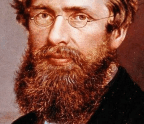AN ISLAND MYSTERY

On Easter Sunday 1722, the Dutch explorer Jacob Roggeveen sighted a small, largely treeless island on his journey across the Pacific Ocean. It was located almost 2,000 miles from South America, the nearest continent, and more than 1,200 miles from the nearest island; it was one of the most remote and isolated locations in the world. Roggeveen’s crew rejoiced, and he gave “to the land the name Paásch Eyland [Easter Island], because it was discovered by us on Easter Day”.
Yet despite its remoteness, the sailor soon discovered that the island was already home to a population of settlers, who had arrived there centuries earlier: “We saw smoke rising in several places,” Roggeveen reported, “from which we concluded that there were people dwelling on the same.” Those people had named their home Te Pito o te Henua – the navel of the world – or, more commonly, Rapa Nui. The Dutch explorers estimated that the population, known as the Rapanui, numbered around 3,000, and described it as “healthy”.
In 1774 Captain Cook also visited the island, while searching for a new continent in the frigid waters of the southern Pacific. After two
You’re reading a preview, subscribe to read more.
Start your free 30 days



